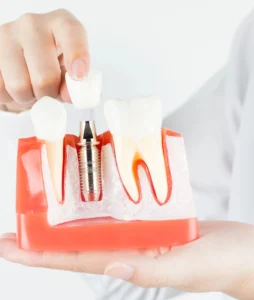Bad breath, medically known as halitosis, is a common concern that affects millions of people worldwide. While the most common causes of bad breath are poor oral hygiene and lack of dental care, several unusual and unexpected factors can contribute to this condition.
This blog post will explore five uncommon causes of bad breath and discuss how addressing these issues can help you achieve a fresher and more confident smile.
1. Digestive Disorders and Bad Breath
Certain digestive disorders, such as acid reflux, can lead to chronic bad breath. When stomach acid flows back into the esophagus, it can create an acidic environment in the mouth, causing foul odors.
Additionally, conditions like gastritis and ulcers can also contribute to bad breath. Managing these digestive issues with proper medical guidance can help alleviate the problem.
2. Medications and Their Side Effects
Many medications, including antihistamines, antidepressants, and some high blood pressure drugs, can cause dry mouth as a side effect. A lack of saliva in the mouth allows bacteria to thrive, leading to bad breath.
If you suspect your medication might be causing your bad breath, consult your healthcare provider. They can adjust your dosage or recommend products to alleviate dry mouth symptoms.
3. Respiratory Infections and Bad Breath
Respiratory infections like bronchitis, sinusitis, and throat infections can release unpleasant odors when you breathe. The bacteria and debris in your respiratory tract cause these odors. Treating the underlying infection with antibiotics, nasal sprays, or other appropriate medications can help eliminate the bad breath associated with these conditions.
4. Ketosis and Bad Breath
Low-carb and ketogenic diets have become popular thanks to their potential to promote weight loss. However, when the body enters a state of ketosis, it produces chemicals called ketones. When these ketones appear in your breath, they cause a distinct and fruity odor. Maintaining good oral hygiene and staying hydrated can help manage this type of bad breath.
5. Stress and Bad Breath
Believe it or not, stress can also contribute to bad breath. When you’re stressed, your mouth tends to become dry due to reduced saliva production. Stress can also lead to poor oral hygiene habits and an increased likelihood of gum disease, both of which can result in bad breath. Managing stress through relaxation techniques, exercise, and seeking support can help improve your overall oral health.
Dental Care Treatment For You!
Ready to bid farewell to bad breath and embrace a confident smile? At West Hills Smiles, our expert dental services are here to help. Schedule a consultation today with our affordable dentist near me to discover the underlying causes of your bad breath and explore personalized solutions. Don’t let bad breath hold you back – reclaim your confidence and oral health now!





